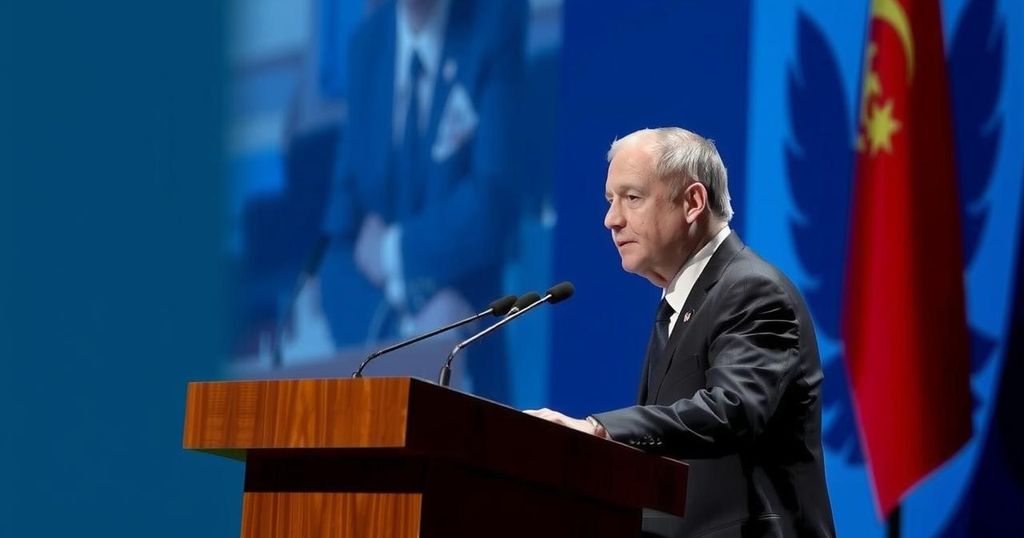COP29: Albanian PM Challenges Efficacy of Climate Summit as Major Polluters Persist
At COP29 in Baku, Albanian PM Edi Rama criticized the summit’s effectiveness, questioning its purpose if major polluters do not change their ways. Other leaders echoed the call for immediate action, emphasizing the need for financial support, especially for vulnerable nations, and highlighting the rising carbon emissions, which contradict commitments made at previous summits.
In an off-the-cuff remark at the COP29 summit in Baku, Albanian Prime Minister Edi Rama expressed frustration over the climate negotiations, questioning their efficacy if the world’s largest polluters persist in their harmful practices. He observed leaders engaging in convivial discussions while speeches on climate change played in the background, highlighting the mismatch between words and concrete actions. Rama emphasized the need for a genuine commitment to address climate issues, citing an alarming UN report indicating increased carbon emissions since the last COP. Additionally, other leaders echoed similar sentiments. The UN Secretary-General Antonio Guterres expressed solidarity with vulnerable island nations and criticized wealthy countries for their lack of leadership. He urged the establishment of a loss and damage fund and called for the reformation of international financial institutions to provide better climate funding. The pressing financial needs were also underscored by numerous nations demanding grants over loans to meet climate objectives effectively. Amidst these discussions, concerns regarding geopolitical factors, such as sanctions impacting climate initiatives in Iran, and the growing urgency to act effectively against climate change were broadly shared among leaders.
The COP29 climate summit serves as a pivotal platform for world leaders to address the pressing issue of climate change and push for more aggressive action to reduce carbon emissions. This year’s summit takes place against a troubling backdrop, as global carbon emissions have continued to rise, prompting critiques regarding the effectiveness of discussions that lack substantial outcomes. Voices from both developed and developing nations call for significant financial commitments and an end to practices that inhibit climate progress, highlighting economic justice and the need for accountability in tackling climate issues.
The discussions at COP29 underscore the gap between rhetoric and action regarding climate change. Leaders across the globe have emphasized the urgency for actual change, especially from major polluting nations. The prevailing sentiment is one of frustration regarding the current trajectory of climate action, with calls for immediate, binding commitments to reduce emissions and enhance financial support for vulnerable countries. As negotiations continue, the clarity of purpose and collaboration among nations will be essential for meaningful progress in combating climate change.
Original Source: www.theguardian.com




Post Comment